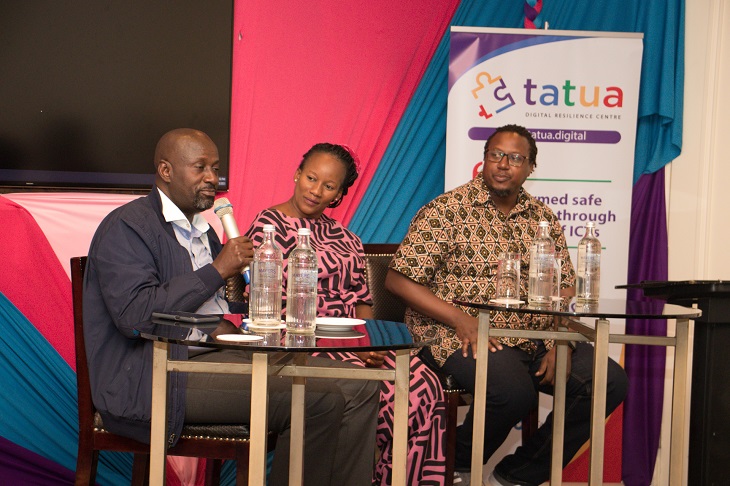The Kenya ICT Action Network (KICTANet) in partnership with the Africa Internet Rights Alliance (AIRA) coalition members officially launched the Tatua Digital Resilience Centre.
The Tatua Digital Resilience Centre aims to support Social Justice Organizations (SJOs) in East Africa, to maintain, grow, change, recover, and survive in a changing environment by implementing effective digital strategies. The Centre will initially support SJOs in Kenya, Tanzania, and Uganda and later scale to other countries in the continent.
The Tatua Digital Resilience Advisory Centre Board is composed of the Kenya ICT Action Network (KICTANet), the Collaboration on International ICT Policy for East and Southern Africa (CIPESA), Policy, and the Centre for Intellectual Property and Information Technology Law (CIPIT), ARTICLE 19 Eastern Africa and independent subject-matter experts. The Kenya ICT Action Network (KICTANet) is providing secretarial services for the center.
Across East Africa, social justice organizations continue to face a number of challenges. The key challenges they face include the shrinking civic space; restrictive and hostile operating environments; their limited capacity, knowledge, and awareness of digital resilience; the adverse impact of the COVID-19 pandemic; and funding limitations that inhibit their activities. Despite these challenges, social justice organizations continue to work towards their goals of promoting social justice and equality for all people.
“The Tatua Digital Resilience Centre offers a bouquet of services to SJOs in East Africa to enhance their digital resilience. This entails offering services such as training for SJO staff and boards; digital resilience assessments; incidence response; development of model policies and strategies; monitoring of emerging issues in the operating environment for SJOs,” Grace Githaiga, CEO and Convenor, KICTANet.
Mr John Walubengo, chair of the Tatu Digital Advisory Board noted that Social Justice Organizations in Africa are increasingly relying on tech and digital platforms for their work. However, they have not grasped the extent of the dependency on digital technologies, opportunities, and risks presented by the digital environment.
“With the Tatua Digital resilience center, we want to be there for them because we believe in what they’re doing, and when they encounter problems of technical nature. We should be able to advise them, irrespective of how the environment changes,” Mr. Walubengo affirmed the role the center will be playing.
The Tatua Digital Resilience Centre is also part of a wider network of resilience hubs in the region under the Ford Foundation’s Weaving Resilience initiative for Stronger Civil Society in the Global South. Other resilience hubs in the region include Protection Hub – Defend Defenders (KHRDC, THRD, UHRC), Financial Hub (KCDF and CivFund), and the Mental Hub (Inuka ni Sisi).
Ms. Jessica Horn, Regional Director for the Ford Foundation in Africa described the launch of Tatua Digital Resilience Center as a “very significant moment and an incredibly important initiative.”
She also emphasized that as citizens adopt and embrace digital transformation, efforts should be deliberate to close the access gap.
“We know that the digital space for people who are marginalized tends to mean that people are more likely to experience digital harms and less likely to experience digital benefits,” she noted.
“The idea is to keep continuing, build a vision of digital governance, which really does support security, privacy, equity, right Freedom from violence, non-discrimination, all of the things that we know are essential if we’re going to have healthy societies.”










